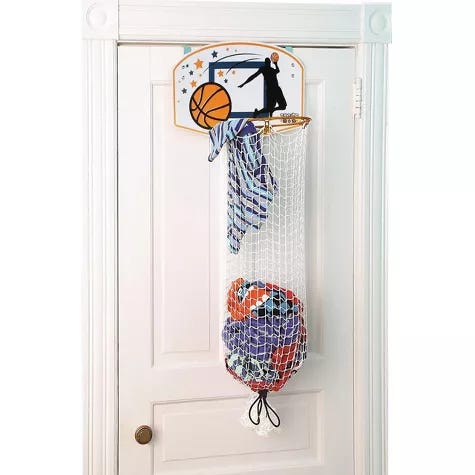We’ve been focused on the acronym INCUP as a way to help motivate people with ADHD, be it ourselves, our loved ones or our students.
Big Takeaways
Using play to motivate isn’t just for kids
Keep games positive, fun and simple
Involve others in the play-making process
Play to Motivate Students
Accomplishing tasks is more fun when we think of them as part of a game. Students—of all ages—learn better through playing.1
General Tips
Keep games simple.2
If they need to be more involved, base them on the structures of pre-existing games, such as Jeopardy, Worlde, Duck Duck Goose, etc.
Let the students lead as much of the gameplay as possible.
With older students, this might mean creating rules or points systems, or generating clues.
Kids of all ages are sensitive to fairness. Refrain from using trick questions or creating situations where you have to “referee” the situation. Rules should be straightforward.
Games for students
Play Wordle with spelling words.
Study vocabulary words using a crossword puzzle. Use the definition as the clue, and the student must fill in the word to complete the puzzle.
Have students create Jeopardy review questions and play their games.3
Play War with fractions cards to develop number sense.
Play to Motivate Non-students
Not everything we want or need to do is about learning, though. Sometimes you just have to get stuff done, but play can still be your ally.
This product, erroneously labeled “for kids”, is a great example. Laundry has to get in the hamper, but the hamper can still be fun.
General Tips
Keep games light and fun; they are not punishments or “training wheels” for someone with ADHD.
Meet your ADHDer where they are:
Some people can see play as “childish” or “silly.” Forcing people feeling this way to play games won’t lead to anybody having fun.
Work together to design games—share input on rules and expectations.
Make games positivity-oriented. They should be about exceeding past records rather than competition.
Example Games
When we had to choose a band for our wedding, my fiancée and I did a “Battle of the Bands” night where we listened to music by several competitors, pitting their YouTube videos against one another.
Time me
Particularly suitable for work that takes time but isn’t demanding in quality, time yourself and see if you can beat your time on the next try. Try this with: unloading the dishwasher, mowing the lawn, re-shelving books, or making the bed.
Keep the counters clear
Many people with ADHD have trouble with paperwork (see the OHIO Principle for more). If you, like me, struggle with leaving mail, books, receipts, to-do lists, etc. on a counter, try this:
If your roommate/spouse/partner finds your important paperwork lying around, unregarded, they get to hide it. Keep the hiding places easy to find. Then, it becomes a game of hide-and-go-seek. It goes without saying that if the paperwork is severely needed, the hider should go and retrieve it, or else this game transforms into a mean-spirited punishment.
P.S.
Coincidence is a funny creature. As I wrote this piece, my fiancée was groaning her way through a cybersecurity training for work. Then, she got to a computer game which had her apply what she’d learned. Her mood completely changed. She laughed, danced, and cursed her way through the rest of the training. I’ll bet she’s learned a few things too.
Saracho, O. N., & Spodek, B. (1995). CHILDREN’S PLAY AND EARLY CHILDHOOD EDUCATION: INSIGHTS FROM HISTORY AND THEORY. The Journal of Education, 177(3), 129–148. http://www.jstor.org/stable/42742374
The greatest game I’ll ever make is called “The Elements Game.” Students take turns naming elements. If they say something that’s wrong, they’re out. The game is extremely simple, yet every year it becomes an obsession for chemistry students.
jeopardylabs.com is a great site for this




